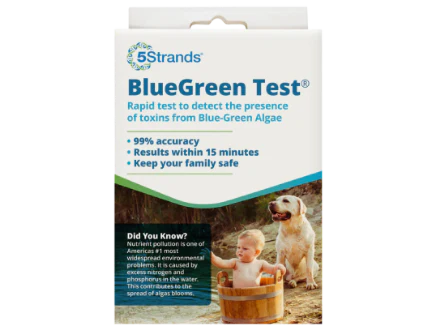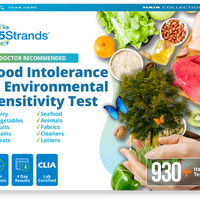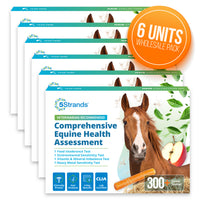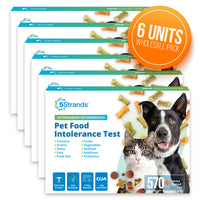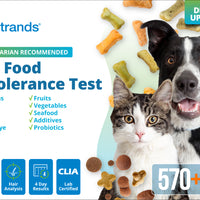Any loving pet owner cares about their dog’s well-being. Here’s some data I recently came across, revealing that over 90% of dog owners recognize the importance of their dogs’ gut health. Despite this understanding and research linking dog gut health to their overall well-being, I’m surprised to see that only 35% of pet parents report closely following their vets’ recommended treatment plans, and about 19% of dog owners say their dogs’ health issues remain unresolved.
I think one reason for this disparity is the lack of detailed consumer education about dog gut health. But don’t despair because in this article, I’ll share everything you should know to better understand the significance of your canine’s gut health and how to maintain it.
Why is gut health important for dogs?
The saying, “Happy gut, happy dog,” has great truth to it. Your dog’s gut function and composition are the foundation of their health. When you see a healthy and alert dog with shiny hair and bright eyes, it’s probably the result of great gut health. Your pooch’s gut supports their:
-
Digestion
-
Immunity
-
Cognitive function
-
Central nervous system
-
Behavioral health.
Like us humans, your dog’s gut will change at different stages of their lives. These changes will impact their bodies. As a pet lover, understanding this has helped me approach my dogs’ health issues with a different attitude and has also saved me time, energy, and financial resources.
How important do pet owners think their dog’s health is?
In our society, we consider our beloved human companions part of our families, want them to be healthy, and enjoy a good quality of life. It’s no wonder that a survey of 2,181 pet owners found that 43.6% put the health of their pets before their own. Take a look at the following pet food trends.
-
About 30% of dog owners give supplements for gut health to their pets.
-
A quarter (24%) of pet food launches in 2024 focus on digestive and gut health.
-
Microbiome health is the fastest-growing gut health claim in the global pet food market
-
Partnerships with experts guide microbiome-based pet food production
-
More than three-quarters (76%) of consumers are willing to pay more for food that is better for their dog’s unique needs.
What’s your dog’s gut microbiome?
Making sure your dog eats and sleeps well, exercises, and has their regular check-ups is all-important. But understanding their gut and the role it plays in their health is something you probably didn’t sign up for when you got your companion animal, and I can totally relate to this.
Your dog’s gut microbiome is a diverse community of microorganisms in the gastrointestinal tract, with the largest number living in the large intestine. To my surprise, I learned that about 70% of a dog’s immune system cells live in their gut. Common microbial organisms in your dog’s gut include:
-
Bacteria
-
Viruses
-
Fungi
-
Protozoa
-
Archaea
What factors influence a dog’s gut microbiome?
When your dog is happy, active, and has no apparent health issues, their gut health is likely functioning well, too. If your dog is constantly struggling with digestive problems, skin rashes, low energy, and behavioral issues, this may be caused by an imbalance in their gut microbiome. Here are some factors that play a major role in the health of your canine’s gut:
-
Birth
-
How they were raised
-
Whether they were rescued
-
Their age
-
The food they eat
-
Dog breed
-
Lifestyle and level of activity
-
Medical conditions they are born with or acquire during their lives
-
Geographical location and home environment
-
Excessive use of antibiotics, medicine, and vaccines
Here is something else I found fascinating. A study reported that family members share microbiota, and people who interact with dogs at home likely shape their gut microbial community.
How does poor gut health impact dogs?
Remember that the composition and activity of your dog’s gut are linked to disease prevention. Your dog may experience a gut imbalance, or dysbiosis, when there is an overgrowth of harmful bacteria and a decrease of beneficial bacteria in their gut. This imbalance can weaken their immune system and negatively affect their well-being, manifesting in different ways, including:
-
Appetite loss
-
Diarrhea
-
Smelly gas
-
Joint pain
-
Skin irritation
-
Hair loss
-
Weight fluctuations
-
Lethargy or low energy
-
Cognitive problems
-
Behavioral changes
Some dog parents are surprised to find out that dog anxiety and aggression are symptoms that may also relate to poor gut health in dogs, pointing to the gut-brain axis's impact on canines' mental health. There is also a connection between a dog’s microbiome composition and learning abilities, behavioral, and cognitive outcomes.
Some dogs may not show noticeable symptoms at first, despite having an unhealthy gut. So, it’s important to consult with your veterinarian and keep a close eye on their health. Keep in mind that some of their symptoms may also result from other medical conditions and not necessarily an imbalance in your dog’s gut microbiome.
What does a healthy dog's gut microbiome look like?
A healthy or balanced dog's gut, known as eubiosis, occurs when your dog has an optimal microbial composition in their gastrointestinal tract. This makes their defenses stronger and supports their health and metabolic functions. Here’s what Dr. Bushra Schuitemaker, head of Microbiology BIOME9 and Pooch & Mutt, says are signs of a balanced dog microbiome:
“A healthy gut microbiome for your dog is rich and balanced, meaning it’s full of bacteria of varying types in EQUAL proportion. So, no species of bacteria is lacking or taking over the entire ecosystem.
A rich and balanced microbiome ecosystem produces the right amounts of acids, alcohols, and sugars that help feed other bacteria and play a crucial role in enabling other bodily processes to function at full capacity. It is also a crucial component in overall good gut health, benefiting its strength and function.”
“The right levels of bacteria, or Phyla Balance, are impacted by a long list of factors, including your dog’s diet.
Just like your dog, the living bacteria need not only the right environment but also the right nutrients to thrive, making diet and a healthy lifestyle a key component to a 5-star microbiome.”
How can you help improve your dog’s gut health?
I understand it can be challenging for dog owners to know with certainty the state of their dog’s gut health. But trust me, it pays off to be proactive and avoid unnecessary health challenges. Here are some natural ways to support gut health:
-
Give your doggy a diet sourced from natural food, rich in fiber, vitamins, and mineral nutrients they need.
-
Ensure your dog stays hydrated regularly.
-
Include dog prebiotics and probiotics in their diet and supplement if necessary.
-
Keep your dog active through moderate exercise and a variety of fun physical and mental activities.
-
Help reduce stress and anxiety by providing a calm environment
-
Avoid unnecessary vaccines and antibiotics
-
Ensure your furry friend gets plenty of sleep
I believe that applying these recommendations infrequently will not help your dog maintain a healthy gut. Consistency is key.
Because your canine friend’s gut health is important, you may want to “Give your dog a voice with 5Strands”. Testing for food intolerances is an essential step in promoting your canine’s gut health. A non-invasive 5Strands Food Intolerance Test can help you determine which foods may be triggering your dog’s symptoms.
Conclusion
Throughout this article, I have shared important information that can help improve and maintain your animal friend’s gut health and quality of life. A proper understanding of how your dog’s gut health functions and the factors that contribute to your furry friend’s health and disease can be a first step in the right direction. Improving and maintaining your dog’s microbiome balance is a team effort, so it’s important to consult with your veterinarian. As a loving pet owner, you may also realize that this is a worthwhile endeavor that takes time and may test your patience.



